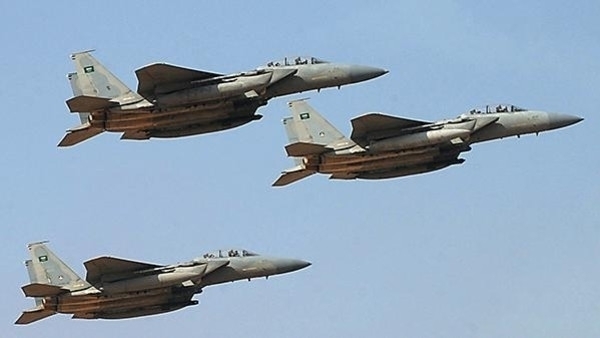Despite all the challenges Operation Decisive Storm imposes on the countries and people of the region, especially in Yemen, it represents an important development in the reality of the region due to the political and security changes it suggests for its future.
Decisive Storm represents a general awareness of the dangers facing the region after the rise of two significant threats in recent years: the risk of armed extremism on the one hand, and the threat of Iranian expansion on the other. Decisive Storm also represents a move to face both dangers simultaneously, after countries of the region failed to confront the problem diplomatically, far from the rattling of arms. The Saudi-led operation aims to rearrange regional and international relations through the establishment of a broad and effective coalition by uniting countries with historically complicated affairs.
The operation not only challenges Houthi extremism and the rise of Iranian influence in Yemen, but also confronts the regional spread of armed extremism on the one hand, and the ideological and armed Iranian expansion on the other. Both of these factors, individually or collectively, have negatively impacted Middle Eastern nations including most Arab Gulf states, the Levant and Iraq, in addition to Egypt, Libya, Tunisia and Algeria.
Focusing on the geography between the Gulf and the Mediterranean coast, the armed extremism in these countries was often connected to Iran – the Houthis in Yemen, Hezbollah in Lebanon and the Shiite militias in Iraq. Simultaneously, an alternative extremism was expanding in the form of the Al-Qaeda affiliated ISIS, which followed in Iran’s footsteps by adopting extremism and armed terrorism as a basis for its relationship with the region and its people.
The Syrian case represents a special model in the region with regard to the spread of militant extremism and Iranian expansion. In Syria, there is a regime extremist in its faith, its policies and practices. This extremism goes beyond the killing of Syrians and their displacement, to become a systematic destruction of their home country. Iranian religious extremism has become a decisive force in the Syrian regime, where Tehran provides political, economic and security support, sending multi-disciplinary experts and soldiers of the Revolutionary Guards to fight at Assad’s side. The Assad regime's extremism was exemplified when it imported militias into Syria with Iranian ties, such as the Lebanese Hezbollah, the Iraqi Abu al-Fadl al-Abbas Brigade, Thulfaqqar Brigade, Haidar al-Karar snipers Brigades and Assaeb Ahl al-Haq, in addition to other armed and extremist militias.
The extremism and terrorism practiced by Assad’s forces and their allied militias opened the doors to widespread militant sectarianism, with these new extremists no different to the regime in their practices. This similarity explains their direct and indirect relationship with the regime security forces and Iranian and Iraqi intelligence that facilitated the entry of tens of thousands of extremists and terrorists into Syria. Syrian regime, Iraqi and Iranian operatives assisted these groups to establish organizations inside Syria, crafting a battlefield for the fight between Shiite and Sunni extremists who now target innocent Syrians, just as the regime did.
The Syrian crisis is potentially the most dangerous threat to the region when considering the concentration of armed extremism coupled with Iranian expansion. Perhaps Operation Decisive Storm should have started in Syria, without the need to follow a similar path. Instead, the Syrian path must focus on a political settlement. In Yemen, a legitimate authority is involved in combatting the Houthis and Iranian expansion, while in Syria, an extremist regime practices state terrorism against its own civilians.
The international community has already constructed a political solution for the Syrian issue through the 2012 Geneva statement and Geneva II conference in 2014, but it is yet to provide any political and military backing to support the implementation of this solution. There is no doubt that Decisive Storm can be a means to support and apply a political solution inside Syria too.
Translated and edited by The Syrian Observer


